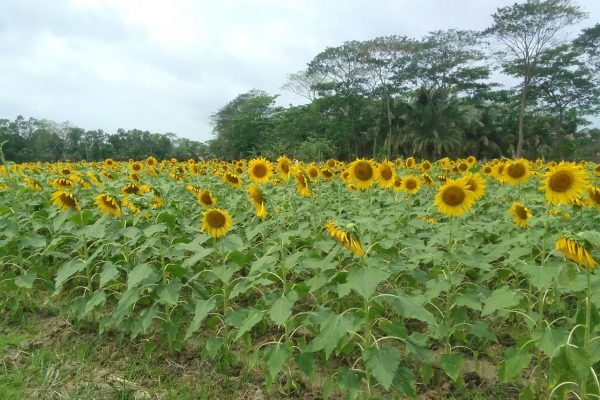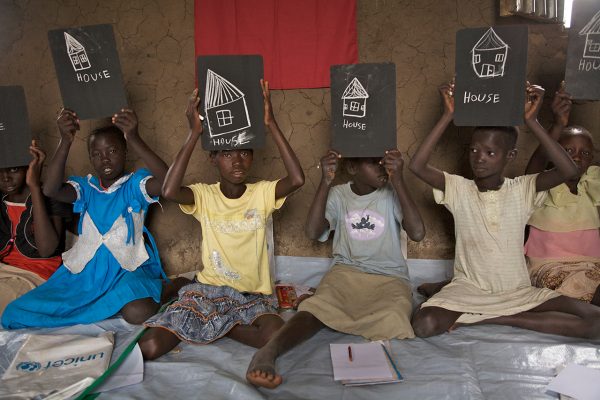COVID-19: Update from Asif Saleh (8 May 2020)
Reading Time: 3 minutes
Bangladesh enters a crucial phase – the lockdown’s gradual exit phase. Read the latest on the situation in Bangladesh and BRAC’s response.
Dear colleagues, partners and friends,
We are entering a crucial phase next week in Bangladesh – the lockdown’s gradual exit phase.
While the holiday has been extended till 16 May, shops and markets are reopening in time for a limited period every day for Eid-ul-Fitr, the major religious holiday that concludes the month of Ramadan.
Some of Aarong’s outlets will be reopening from May 10, with caution and enforcing strict new safety measures and protocols in place for COVID-19. Customers must register for a one-hour shopping slot on www.aarong.com to ensure social distancing. Entry will be restricted to only pre-booked customers, and will be denied if customers do not bring masks. Only two people will be allowed at a time and shopping must be completed within the time slot. Digital payments will be encouraged, and the premises will be continually sanitised. Entry will be denied for customers with temperature readings above 98 degrees Fahrenheit.
The government has lifted restrictions on gathering at mosques with new standard operating procedures for mosques. A notice issued on 7 May by the Ministry of Religious Affairs stated that mosque authorities must ensure that certain health guidelines are met, such as wearing masks, maintaining social distancing, and having fewer staff.
Testing facilities are under massive pressure. 1,000 people lined up to get tested at Bangabandhu Sheikh Mujib Medical University on 5 May. To help ease the process, BRAC in partnership with the Directorate General of Health Services, will scale up its sample collection kiosk model with 100 kiosks in the short term and eventually approximately 600 kiosks in the key hotspots in the country. The scarcity of labs outside Dhaka is causing long delays in results coming back. With the increase of sample collection facilities, the capacity of the labs outside Dhaka needs to increase significantly to see the full benefit of the scaling up of sample collection.
The government is preparing to combat the economic fallout caused by the lockdown through 18 stimulus packages worth BDT 956.19 billion – equivalent to 3.3% of Bangladesh’s GDP. From this, BDT 777.5 billion will be lent to small to medium businesses through banks, under the supervision of the finance ministry and the central bank. Concerns remain whether the benefits of this will go to small farmers and businesses.
A much bigger role of intermediaries such as various microfinance institutes (MFIs) can be considered here for ensuring scale, reach and inclusion. This will not only help small businesses and small-scale farmers, but at the same time will support MFIs which are facing a massive economic challenge as well. The Economist covered this issue of MFIs “existential threat” this week, where BRAC’s Microfinance Senior Director Shameran Abed was interviewed. BRAC’s microfinance borrowers have hugely benefited from withdrawing their savings in such trying times during the last few weeks. BRAC electronically disbursed close to BDT 115 crore worth of savings to its borrowers during the last few weeks.
A lively webinar on how Bangladesh should target its social safety net support was held on Thursday with representation from BRAC, A2i, Gates Foundation, Overseas Development Institute, Yale University and BRAC JPG School of Public Health. This can be accessed here.
On a more positive note, The Economist listed Bangladesh as the ninth strongest economy on the financial strength of 66 emerging economies in the wake of the pandemic. The vulnerability of selected economies was looked at across four potential sources of peril – public debt as a percentage of GDP, foreign debt (both public and private), cost of borrowing and reserve cover. Not everyone agrees, however.
Over 90% of the annual harvest of boro paddy (a special type of rice grown on residual water) has been completed in the haor (wetlands) areas, amidst the shortage of agricultural labourers because of the pandemic and the threat of forecasted flash floods. BRAC’s report reveals that the yield of rice may increase in the northeastern region this year despite the decreased cultivation of land.
Violence and discrimination against women during the crisis has increased. 57% of respondents in a BRAC study reported that disappointment over no earnings and staying at home for a long period of time is causing increased incidences of violence.
It is heartening to see that Bangladeshi and international universities and research institutions are continuing to supply the vital data and evidence which is crucial for decision making. I am especially proud of the contribution made by various programmes of BRAC, BRAC University’s Institute of Governance and Development, James P Grant School of Public Health and Institute of Educational Development and their various partners. We will continue to share these findings to inform decisions.
While the road to a new normal for Bangladesh remains uncertain, I am confident we will find our way, as we have done before.
See this week’s full report here. If you want to see any particular issue covered, please let us know at covid19response@brac.net.
Asif Saleh is the Executive Director of BRAC Bangladesh.





